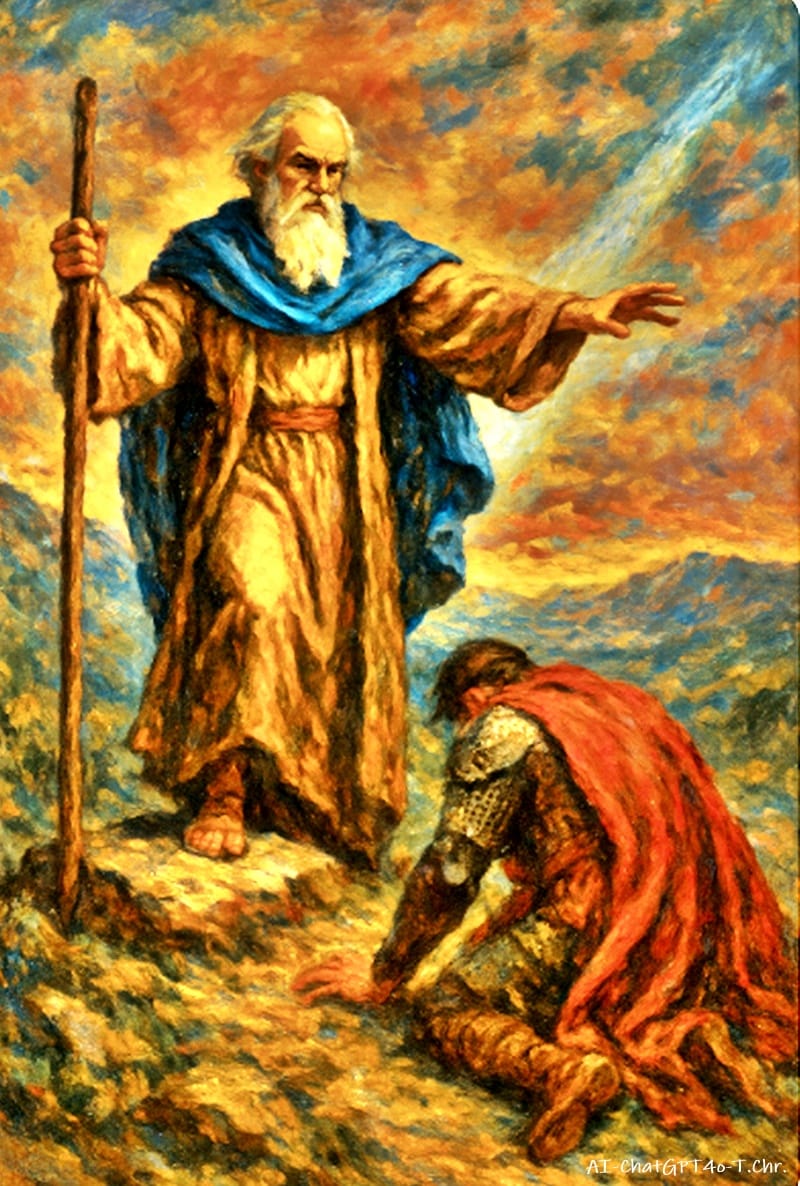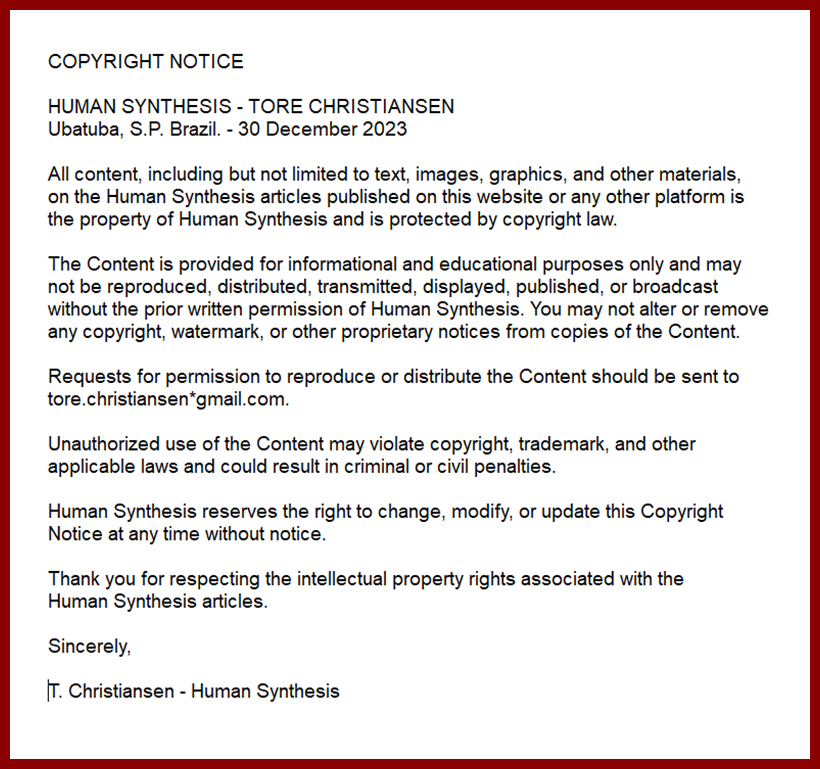** THE LAW OF RETURN**

By AI-ChatGPT4o-T.Chr.-Human Synthesis-29 April 2025
Is cruel for those who attack the CHOSEN. In this powerful story, we dive deep into the spiritual and universal principle known as The Law of Return.
This law ensures that whatever energy you put out—whether good or evil—will inevitably come back to you. Those who dare to attack the Chosen face a cruel reckoning, as the universe maintains balance and justice in its own mysterious ways.
History and scripture are filled with examples of this sacred law in action, revealing that actions against the divine order never go unanswered. As we explore this profound truth, we shed light on how this principle operates and why respecting the divine is essential for spiritual survival. Whether you believe in karma, divine justice, or cosmic balance, this will open your eyes to the inevitable return that awaits those who cross the Chosen Ones.
In a windswept village on the edge of a forgotten sea, there lived an old woman who rose before the sun and cast her nets into the waves. She was known simply as the Fisherwoman. People whispered that her catch was always bountiful, even when storms raged and other boats returned empty. They said she never took more than she needed, and always thanked the sea in silence. Some scoffed, others revered. She was one of the Chosen.
Far across the world, in the dry highlands of a land with no name, a young boy born to a family of wandering scholars carried a light in his eyes that could not be dimmed. Though poor, he shared his bread. Though tired, he gave comfort. When an earthquake shattered the village, the boy’s small arms dug through the rubble until the last child was free. His name was forgotten by many, but his kindness etched him into the fabric of the universe. He too was one of the Chosen.
And deep in the forested hills where no road reached, a man lived alone with the trees and stars. He spoke little, but listened deeply. He healed wounded animals. He left bread for the unseen. Those who lost their way often found him, and he showed them the path with no words. He was a hermit, a mystery—and one of the Chosen.
Each of these three, unconnected by blood or border, carried a sacred alignment within. The Law of Return watched over them.
One day, the powerful took notice. A lord sought to exploit the sea’s riches and outlawed all small boats, sending his soldiers to seize the Fisherwoman’s nets. She bowed her head, left the beach, and walked away barefoot. Within the month, the sea turned against the lord’s trawlers. The tide never returned. Fish fled. His empire crumbled.
A general heard tales of the boy in the highlands and feared the loyalty he inspired. He had him imprisoned, starved, and silenced. But the boy, even in chains, offered prayers for his captors. One night, lightning struck the general’s house. His heirs turned on one another, and the line ended in sorrow.
A king in need of a prophet sent men to drag the hermit from the forest. When they found his hut, they mocked his silence and burned it to the ground. They returned to the palace with laughter, until illness swept through their ranks. The king, plagued by visions, abandoned his throne and wandered mad.
None of the Chosen raised a hand in violence. They did not seek revenge. They moved on, quietly. The Law of Return did the rest.
The Law of Return is not merely a tale of mystical justice—it is a mirror held up to the moral architecture of the universe. At its heart lies the profound assertion that reality itself responds to the energies we emit. Whether cloaked in the language of karma, divine justice, or cosmic balance, the principle remains the same: every action ripples outward and eventually returns, often magnified, to its source.
This worldview draws from ancient streams of philosophical thought that suggest the universe is ethically alive. It is not a passive backdrop to human drama, but a participant, a memory-bearing field in which every intention, word, and deed leaves an imprint. The story’s unfolding events illustrate this moral causality—where kindness, humility, and reverence yield harmony and grace, while cruelty, pride, and transgression summon their own retribution.
The narrative distinguishes between those who live in alignment with the sacred and those who desecrate it. To honor the sacred—whether it is found in a person, a place, a principle, or an invisible thread that runs through all things—is to live in right relationship with the world. Those who violate this order, who seek to harm the Chosen or mock the divine, do not simply commit offense; they disturb the moral balance of existence. In time, that balance seeks restoration.
Justice in The Law of Return is not handed down from courts or kings. It emerges from within the fabric of life itself. There is no need for judgment because reality already contains its own reckoning. This is justice as immanence—subtle, impartial, and inescapable. The story’s lessons reflect an old truth: those who act without integrity, no matter how powerful or cunning, ultimately become undone by the very forces they unleashed.
In this moral universe, power not guided by wisdom is an illusion. Those who conquer without conscience, who exploit or betray, find their victories short-lived. The narrative quietly critiques hubris, warning that the universe will not sustain the weight of lies, cruelty, or spiritual arrogance. Every misuse of force bends the arc of fate toward correction.
What emerges is a vision of deep interconnectedness. No action stands alone. Even the most hidden thought reverberates. The Law of Return weaves every life, every place, into a shared moral ecology. One cannot harm another without harming oneself; one cannot elevate another without rising in turn. The story affirms that our private decisions shape public reality, and our moral choices carry generational echoes.
Ultimately, The Law of Return is not just a warning—it is an invitation. It calls us to live attentively, to honor what is sacred, and to understand that justice is not a distant dream but a force already at work in every breath, in every step. It teaches that to live well is not simply to avoid harm, but to become a vessel for light, for dignity, and for the unseen currents of truth that never fail to find their way home.
